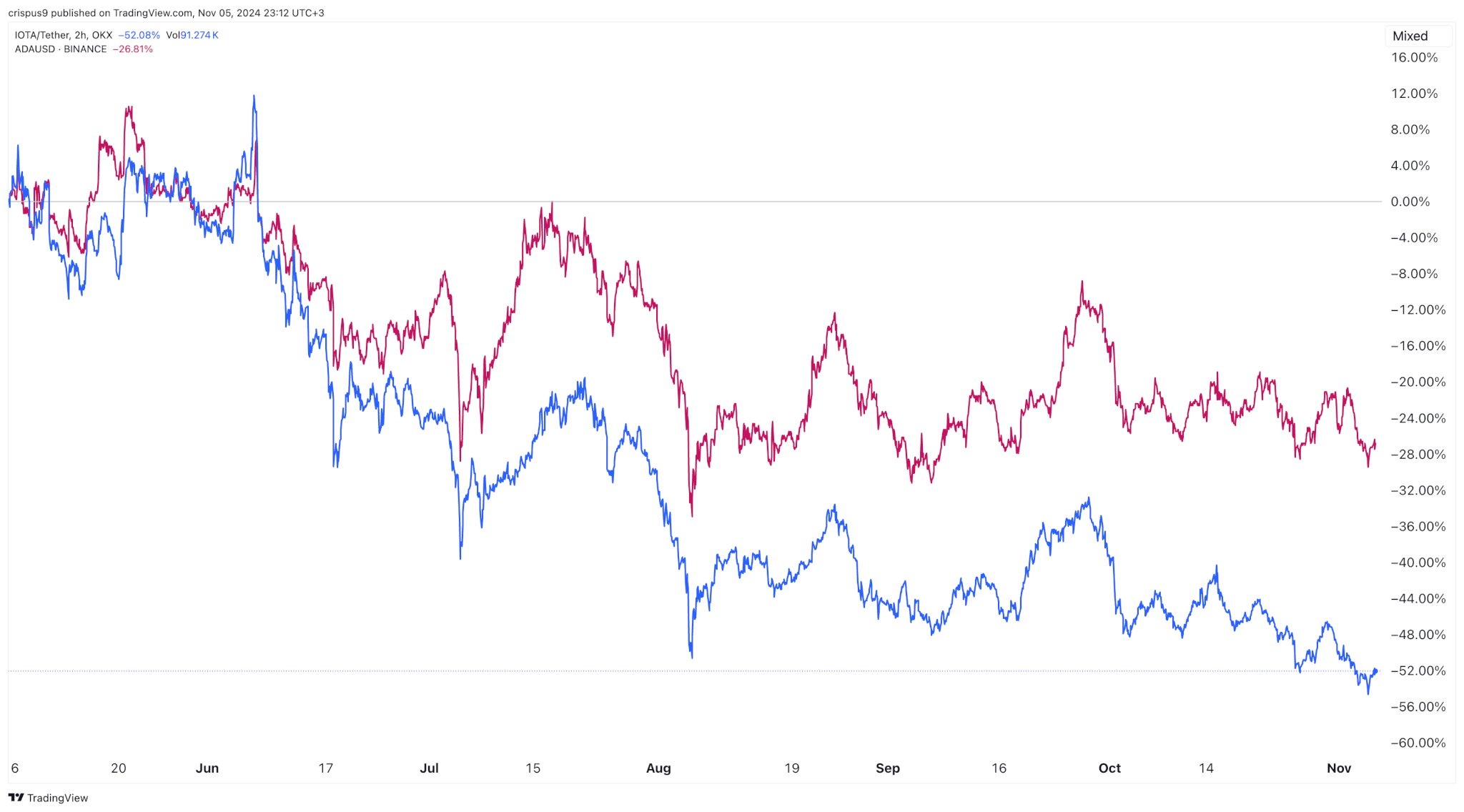Is Binance’s dominance falling?
Key Takeaways
Binance’s share of trading volume is at 48%, despite being 66% at the start of the year
Exchange has landed in hot water over a multitude of regulatory issues, while lack of transparency has caused concern in market
A round of layoffs is planned at the company, following in the footsteps of many companies around the industry
The world’s biggest cryptocurrency exchange dominates the landscape. At the end of last year, CCData reported that Binance’s share of trading volume on centralised exchanges was a staggering 66%. Binance began 2022, when all was well in the crypto world and the phrase “bear market” had not entered the lexicon yet, with a 48% market share.
The surge in market share came despite overall trading volume falling 45% during the year 2022, spot trading coming in at $5.29 trillion on Binance. Nearly every other major exchange lost market share last year (with the exception of ByBit), showing that despite capital fleeing from the industry at large, Binance was eating up all before it. Second place went to Coinbase, toiling with far behind with an 8.2% share.
Market share falling in 2023
Fast forward to today, however, and Binance’s market share seems to be falling. According to CC Data, in February 2023, three months after Binance came in at a 66% share of volume, it was down to 57.5%. Today, it is down further again, to 43%.
The dropoff follows what has been a turbulent few months for Binance, to say the least. The exchange has found itself in hot water with regulators, right at the heart of an industry-wide crackdown in the US. In February, the SEC shut down the Binance-branded stablecoin, BUSD, over securities laws violations (deep dive on put together on that here). BUSD was issued by Paxos, a firm domiciled in New York. BUSD accounted for over a third of the company’s trading volume, the coin a vital part of the liquidity on the exchange.
The regulatory trouble has not stopped there. Shortly after, the Commodity Futures Trading Commission (CFTC), charged Binance and high level executives, including CEO Changpeng Zhao, for leading an “intentionally opaque common enterprise”. The complaint alleges that “even after Binance purported to restrict U.S. customers from trading on its platform, Binance instructed its customers – in particular its commercially valuable U.S.-based VIP customers – on the best methods for evading Binance’s compliance controls”. The charges are hefty, including alleging Binance “failed to implement basic compliance procedures designed to prevent and detect terrorist financing and money laundering”.
CEO Zhao also was forced to dispel concern around the company’s lack of transparency in the wake of the FTX collapse last November. Despite publicly pushing for proof of reserves declarations, Binance’s attempt to present finances to the world was lacking, omitting liabilities entirely. In truth, there is not much point proving reserves when the amount of liabilities are unknown, and the market did not react well to the omission. Zhao’s response to why liabilites were not publicised was that “liabilities are harder”, and simply said to “ask around” for proof that “we don’t owe loans to anyone”. Auditor Mazars, who oversaw the proof of reserves report, suspended work with Binance after this, citing a misunderstanding by the public on how they work.
What does this mean for crypto?
For the crypto industry, collapsing prices of 2022 have subsided thus far in 2023, with Bitcoin up 63% year-to-date. Nonetheless, liquidity across the space has been decimated (deep dive on that here), with prices volume still a magnitude below the pandemic peaks.
While prices are currently stable, the space is fighting a growing battle for legitimacy in the US. SEC chair Gary Gensler slammed the industry for “mass non-compliance”, while Coinbase CEO Brian Armstrong has admitted his exchange may be forced offshore if the regulatory climate continues to worsen (Coinbase was issued with a Wells notice in March over potential violations of securities laws).
One silver lining to all this is that the sheer dominance of Binance cannot be good for the crypto industry, which was built upon the pillar of decentralisation. Binance, like it or loathe it, represents an enormous central point of risk for the space, given its importance to overall liquidity. Were anything to happen the exchange, it would have seismic consequences – this is part of the reason that there was so much concern towards the tail end of last year when Binance was under fire for its lack of transparency,
However, Binance’s struggles are predominantly for regulatory reasons, which are affecting the overall industry. Sure, the exchange is getting hit harder than most with a plethora of complaints and allegations, but the floor seems to be falling from beneath all crypto companies domiciled in the US.
Perhaps the biggest signal of Binance’s struggles this past few months is the round of layoffs that is coming. Many crypto companies pared down their workforces significantly over the past year, however Binance maintained that it was hiring through the downturn. That seems to have changed, although the company has not confirmed how many employees will be cut, with reports claiming up to 20% will go. Chief strategy officer Patrick Hillman insisted on Twitter that it was a resource reallocation rather than a downsizing, however he also hinted at the role that regulation has played.
“Regulators in almost every major market are also working overtime to provide greater clarity for their expectations of the industry and the asset class more broadly, which is putting even more pressure on orgs to adapt or fall by the wayside”, he said.
In conclusion, Binance’s grip on the number one spot may have loosened, but it remains incredibly dominant and clear of all competitors, at least for now. The dropoff in dominance is not a bad thing for crypto in itself, but the reasons that have led to it – regulators turning the screw and volume dipping across the space – certainly are issues. Prices may be trading flat over the last while, but the challenges facing the space remain plenty.
The post Is Binance’s dominance falling? appeared first on CoinJournal.


